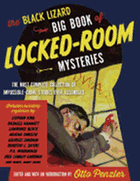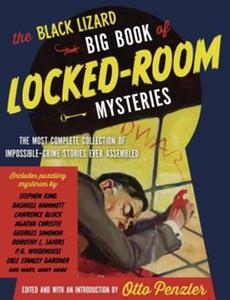

Penzler organizes his tome in nine themed sections, including stabbing, vanished people, shootings and stolen valuables. One story stands alone in its own section, un-categorizable: Martin Edwards's "Waiting for Godstow," a curious tale about a detective, Godstow, who doesn't even realize he has an impossible crime to solve. Each story is accompanied by a short, informative introduction with an author bio and piquant critical notes: Jacques Futrelle's "The Problem of Cell 13" is a "masterpiece"; Lord Dunsany's "The Two Bottles of Relish" was chosen by Ellery Queen as one of the 10 greatest mystery stories ever.
The classics section opens with the "single most important story in the history of mystery fiction"--Edgar Allan Poe's "The Murders in the Rue Morgue." Penzler argues that Poe invented most of the significant elements in the literary genre, including a brilliant detective, his/her dimmer sidekick, misleading clues, and an apparently impossible murder. Other all-time classics in this mystery sub-genre include "A Terribly Strange Bed" by Wilkie Collins and Sir Arthur Conan Doyle's "The Adventure of the Speckled Band."
The next section--stabbing--leads off with the highly atmospheric and brooding "The Wrong Problem," by John Dickson Carr, the "greatest practitioner of the locked room mystery." Carr's story features his most famous detective creation, Dr. Gideon Fell. Originally published in 1936, it fits right into what Penzler calls the Golden Age of detective fiction and the locked-room mystery, the period between the two World Wars. Some of the greats flourished during this period: Agatha Christie, Dorothy L. Sayers, Ellery Queen, Margery Allingham and R. Austin Freeman. All are represented here. Freeman's story "The Aluminium Dagger" features his distinctive "gaslight charm" (as Raymond Chandler called it) and centers on the greatest of all scientific detectives, Dr. John Thorndyke.
Other authors demonstrating their locked-room prowess include Stephen King--with "The Doctor's Case," a Sherlock Holmes pastiche--MacKinlay Kantor, P.G. Wodehouse and Dashiell Hammett. This is the ideal bedside book for mystery fans: packed with short, challenging tales of murder and deduction, easily consumed before the eyes flicker. --Tom Lavoie, former publisher
Shelf Talker: This unparalleled anthology collects the finest stories that delve into solving impossible crimes.

